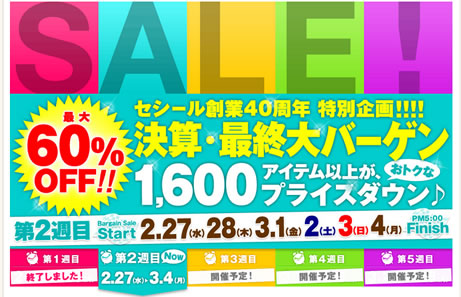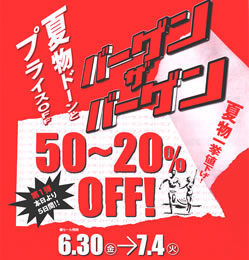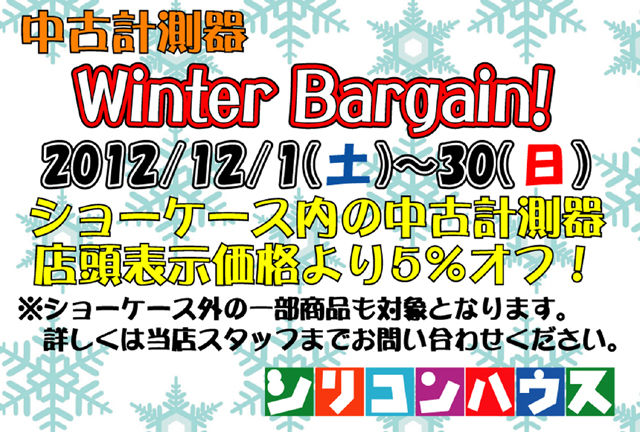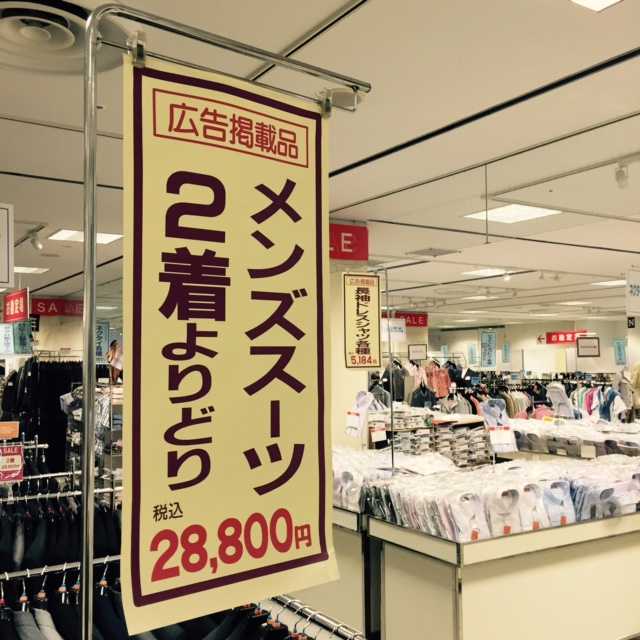Sale? Bargain Sale? Bargain?
Here is a typical conversation between you (a native speaker of English) and your Japanese friend.
Your Japanese Friend: “Baagen Seeru-ni Ikimasho (「バーゲンセールにいきましょう。」).”
You: ???
When your Japanese friend says, “Seeru (Sale)” or “Baagen Seeru (Bargen Sale),” she means “sale” for you, such as “Father’s Day Sale” or “Christmas Sale.” That is, ” Seeru (sale)” in Japanese almost always means “on sale.” You will be able to purchase a particular item or service for a discounted price. For the Japanese, there is not much difference between “(on) sale” and “bargain.” So, sometimes, like the example above, they say, “Baagen Seeru (bargain sale),” using 2 similar words together.
See other examples down below:
Remember! For the Japanese “Seeru (Sale)” is equal to “Bargain” or “On Sale” in English.
By the way, “As Advertised” in English is equal to “Kookoku Keisai Hin (広告掲載品)” like the one down below.










